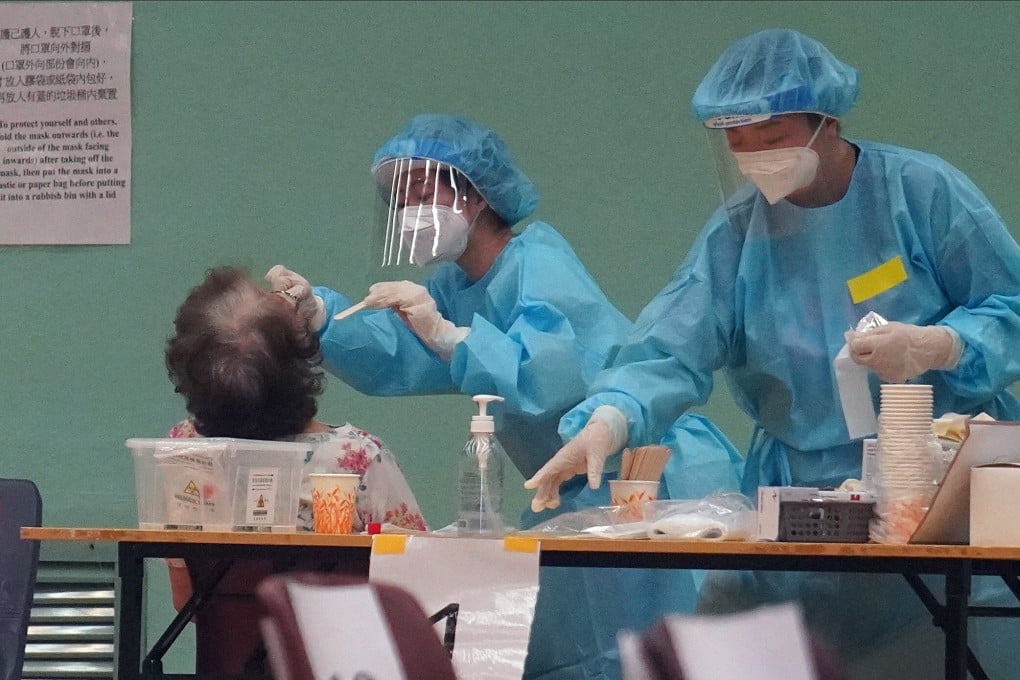Advertisement
Is Hong Kong’s mass Covid-19 testing scheme worth the trouble? Debate rages as officials extend the voluntary programme by four days
- Officials brush aside criticism of free screening programme, insisting it is helping identify city’s invisible coronavirus carriers
- Four-day extension confirmed as number of Hongkongers registered for the voluntary exercise nears 1 million mark
Reading Time:4 minutes
Why you can trust SCMP

Officials have extended Hong Kong’s free testing programme by four days as they identified two more Covid-19 cases in the voluntary citywide exercise, insisting it was helping track down invisible coronavirus carriers and dismissing persistent doubts over its reach and efficacy.
A total of 953,000 residents had signed up online for the programme as of Friday night, and while officials have stopped short of setting a target, it looked unlikely that the final tally would be much over 1 million in a city of 7.5 million.
The city confirmed 12 infections on Friday, including the two newly screened cases and another two found on Thursday from the first batch of 128,000 people tested three days earlier at the launch of the programme. That took the total found under the voluntary scheme to eight.
Advertisement
Officials defended the effectiveness of the mass exercise, amid lingering questions as to whether the extent of public participation could reach a critical mass in the remaining time, while the city responded to improving infection numbers by reopening more venues, including gyms, massage parlours, and clubhouses.
Secretary for the Civil Service Patrick Nip Tak-kuen announced that testing would continue at 122 of the 141 sample collection points until September 11, but 19 would close after September 7 because of their low sign-up rate.
Advertisement
He said the programme’s findings would help the city tackle any outbreaks this autumn and winter, as well as resume cross-border travel as early as possible.
Advertisement
Select Voice
Choose your listening speed
Get through articles 2x faster
1.25x
250 WPM
Slow
Average
Fast
1.25x